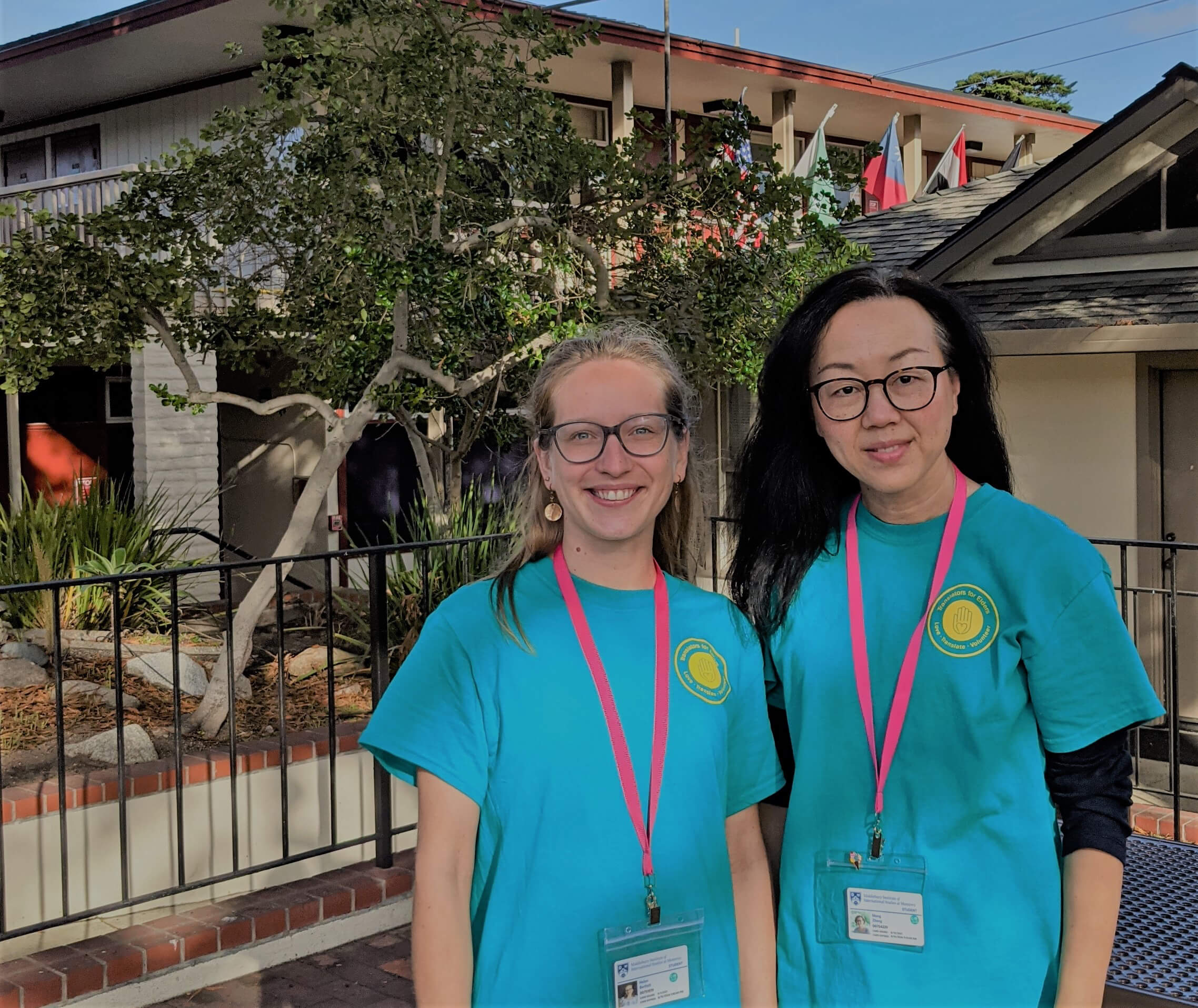
Translators for Elders, a project created in winter 2021 by Meng “Barbara” Zhang MAT ’22 and Helen Bartlett TLM ’22 to provide Spanish and Chinese translation services, heads into its second year with an improved website and official nonprofit status.
Zhang and Bartlett first met last year—remotely—in a J-term class, Crowdsourcing Social Localization and Translation, led by Adam Wooten, a professor in the Translation and Localization Management (TLM) program. During that class, they developed the idea for Translators for Elders (TFE), a project that would connect older adults from the greater Philadelphia area with Middlebury Institute of International Studies (MIIS) students and others who would translate medical documents from English into Spanish or Chinese. In March 2021, the two launched the TFE website and began promoting a 12-week summer internship.
Under the TFE model, translation requests are submitted by Philadelphia churches and nonprofits on behalf of their clients to the translation crowdsourcing website Crowdin. TFE’s two project managers—one for Spanish, one for Chinese—assign those requests to volunteer translators who, on their own time, translate the documents into one of the two target languages. For now, Translation for Elders services are confined primarily to the greater Philadelphia region, from which Zhang hails. There, she has served on a few nonprofit boards, so she and Bartlett agreed it was a logical place to start. “I know the needs of the communities there,” Zhang says, “helping the community overcome the language barriers.” Zhang is currently pursuing an MA in Translation.
From May 24 through August 27, a team of 17 volunteers—14 of them from the MIIS student community—provided translations, working across four time zones and staying in touch through Zoom and Teams as well as recordings and emails. In addition to the translators and project managers, the team included proofreaders, a lead linguist, and social media and website support volunteers. Their work included developing Spanish and Chinese style guides to ensure consistency across translations.
Much of the work involved translating information regarding the COVID-19 virus and vaccines. And while pandemic restrictions necessitated that the work be done remotely, Zhang said that didn’t hinder the effectiveness of the service. “It’s always great to be there in person, but with the technology and the platform and the remote work mode from our student volunteer translators, we actually can reach more people.”
In September, classes resumed in person at the Institute, Translators for Elders was officially granted nonprofit status, and, after months of collaboration, Zhang and Bartlett finally met in person. They put translation services on hold for a few months while they trained new interns to replace those who had moved on. Two students, as part of a TLM practicum, spent the fall improving the website’s localization, with the goal of keeping the site up-to-date in English, Spanish, and Chinese. Eventually, clients will be able to access TFE’s services directly, rather than just through Crowdin.
For the fall, Zhang and Bartlett also organized a remote speaker series, in which speakers presented in languages other than English, providing opportunities for translation and interpretation students to work in a relay setting. The first speaker in the series, for instance, gave his presentation in Mandarin. Chinese-speaking students interpreted that into English, and then 10 interpreters, working in pairs, relayed that into five other languages. In November, the China Press, a Chinese-language newspaper based in the U.S., published an article about the TFE speaker series.
The Future of Translators for Elders
Both Bartlett and Zhang, like many of the students who took part over the summer, say they’ll stay involved with Translators for Elders even after they’ve finished at MIIS. In the long term, they plan to add additional languages for translation, and they may even expand into interpreting services.
In addition to fulfilling its mission of providing translation services to older adults, underserved communities, and nonprofit organizations with limited resources, Translators for Elders is helping the Institute: it provides internships that can serve as practicums for translation, interpretation, and localization management students and offers real-world experience to current students and graduates looking to build their résumés. And beyond all that, on a personal level, Bartlett and Zhang say TFE has given them an unexpected reward: seeing the satisfaction students get from using their skills in a meaningful way.
“Helping older adults get access is huge, and there’s such a need for it,” Bartlett says. “But I didn’t realize how much I would appreciate the other side of it, of seeing students be really thankful to have this opportunity to get connected to a cause that they also really care about.”
No comments:
Post a Comment